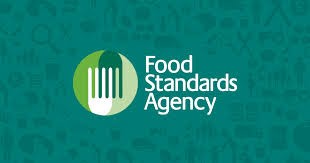The Food Standards Agency (FSA) has published updates to their food allergen labelling and information technical guidance.
This best practice technical guidance aims to support food businesses when applying allergen labelling, whilst helping to keep consumers safe. The update supports the FDF Change Management of Allergen Information guidance (Opens in a new window), also published today.
The FSA technical guidance is recommending a number of changes in relation to how food businesses should use Precautionary Allergen Label (PAL) and is advising that food businesses should:
- Only apply a PAL if there is an unavoidable risk of allergen cross-contamination which cannot be sufficiently controlled by segregation and cleaning.
- Specify which of the 14 major allergens the PAL refers to – for example, using “may contain peanuts” rather than a generic “may contain nuts” statement.
- Use PAL statements in combination with a ‘vegan’ label where a risk of cross-contamination with an allergen has been identified. A ‘vegan’ label communicates different information to a ‘free-from’ claim, which is food safety information aimed at different consumer groups.
The technical guidance goes into further detail about why businesses should not use a PAL statement alongside a “free from” statement and gives updated information on best practice for the use of No Gluten Containing Ingredient (NGCI) statements for food businesses in the non-prepacked food sector.
Natasha Smith, Deputy Director of Policy at the FSA said:
While the use of PAL is voluntary, it is important that it should be as accurate and helpful to consumers as possible when it is applied. The updates to this guidance will help businesses to effectively manage allergens, and ensure those living with food allergies and intolerances get the greatest possible benefit from PAL.
The guidance also helps make clear the distinction between a ‘vegan’ claim, and a ‘free from’ claim. A ‘free-from’ allergen claim should guarantee that the specified allergen is absent and to use it a food business must have implemented strict controls to eliminate any risk of cross-contamination. A vegan claim is not about food safety, and our new guidance highlights that a PAL statement for any or all of molluscs, eggs, fish, milk and crustacea (foods that are both regulated allergens and animal products) can be used to communicate a risk of their unintended presence, where this has been identified by a food business’ risk assessment.
We continue to encourage consumers who have allergies and intolerances to check the label of food products at all times, to make sure the food does not contain ingredients they may be allergic to.”
Kate Halliwell, Chief Scientific Officer at the Food and Drink Federation said:
The FSA’s technical allergen guidance is a key document for business, which helps ensure appropriate labelling is provided to best support consumers. Of particular note, this latest version provides important clarity to food businesses, especially small and medium-sized ones, on the appropriate use of precautionary allergen labelling statements. Bringing consistency to how ‘may contain’ statements are used will help businesses and, importantly, ensure allergenic consumers are not unnecessarily restricted in the food choices they have.
You can access a summary and the full technical guidance for food allergen labelling and information requirements here.


